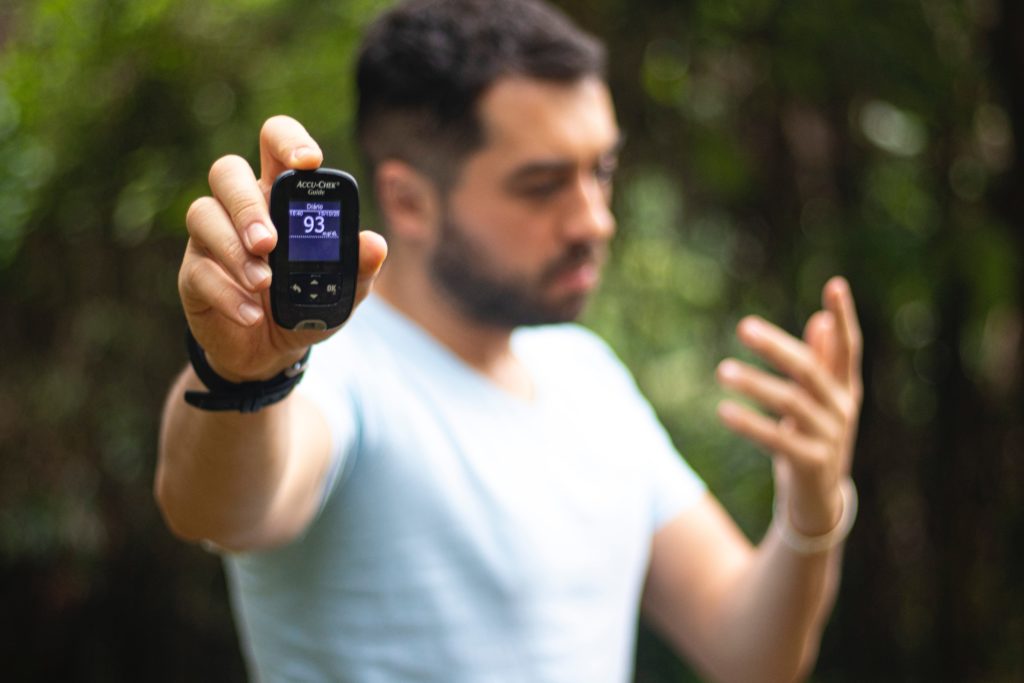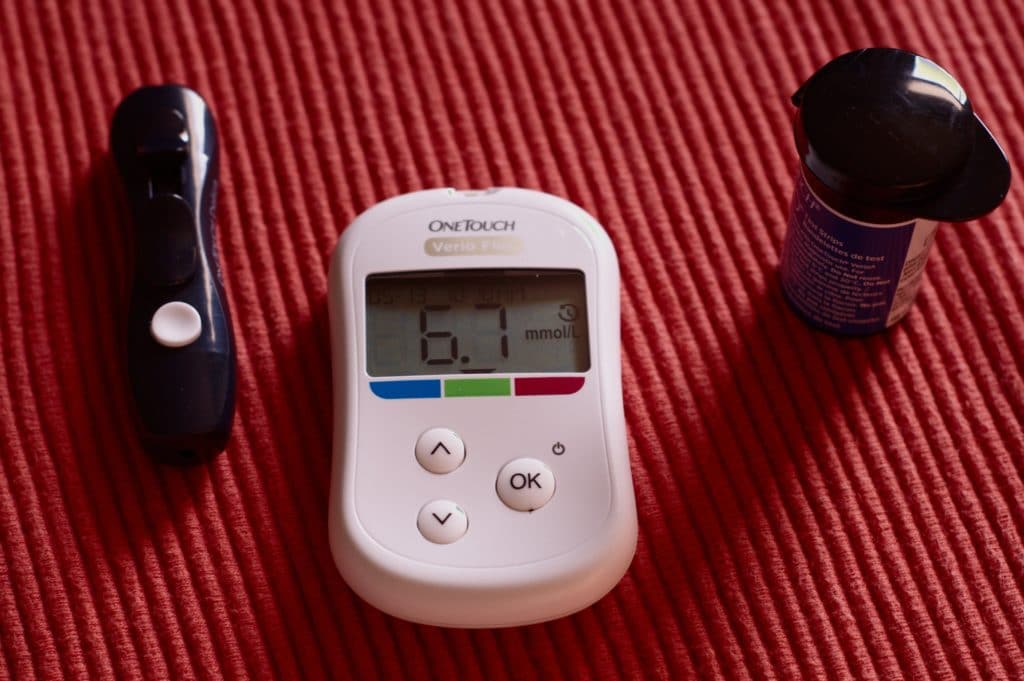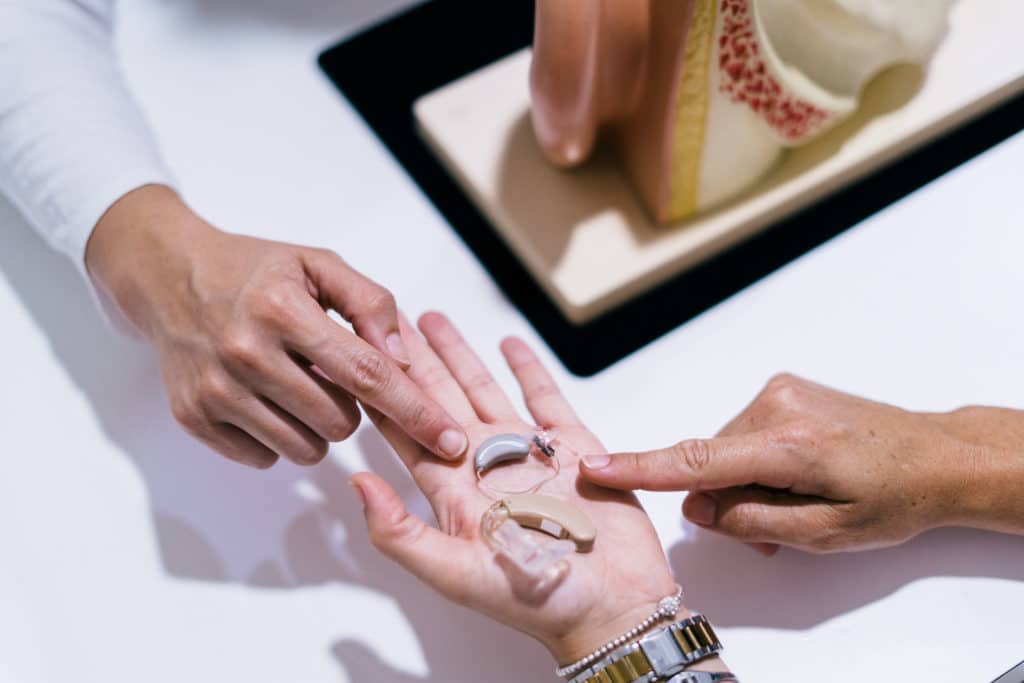
Over 30 million people in the United States have diabetes, a disease in which your blood glucose, blood sugar levels, and levels are too high. Roughly 90% of people with this disease have type 2, in which their body does not make or use insulin well. But regardless of the type of diabetes you have, you should keep a close watch on your hearing.
Research suggests that people with diabetes are more than twice as likely to develop hearing loss than those without the disease.
What is diabetes?
Diabetes inhibits the body’s ability to produce and/or control insulin properly, causing glucose to build up in the bloodstream instead of filling hungry cells. The amount of people diagnosed with this disease is growing, increasing more than 50 percent in the last ten years, according to the Diabetes Research Institute Foundation.
There are three types of diabetes:
- Type 1: People with this type of diabetes cannot make the amount of insulin needed to move glucose into cells due to an autoimmune situation in which the body attacks the beta cells that produce the hormone.
- Type 2: People diagnosed with Type 2 diabetes can produce insulin independently; however, the amount of insulin generated may not be sufficient or adequate to move glucose into the cells.
- Some pregnant women develop gestational diabetes, which makes the body’s cells more resistant to insulin. Gestational diabetes generally goes away once the baby is delivered.
The result is an elevation in blood sugar levels in all three types, which must be controlled. Diabetes is the leading cause of blindness, amputations, kidney and heart failure, and stroke. This disease’s symptoms include frequent urination, increased thirst and/or hunger, sleepiness, rapid weight loss, blurred vision, slow healing of infections, and difficulty concentrating.

How is diabetes and hearing loss connected?
Although it isn’t entirely clear what causes or contributes to hearing loss in people with diabetes, research suggests the following. Because of high blood sugar, blood vessels throughout the body can become damaged, including the ears. If a person has the disease for an extended period, and it isn’t well managed, there could be damage to the broad network of small blood vessels in your ears.
A 2012 study conducted by the Journal of Clinical Endocrinology & Metabolism analyzed over 20,000 participants. It concluded that people with diabetes were more twice as likely to have hearing loss without the diseases, regardless of age.
An additional effect of diabetes is nerve damage. It’s possible that damage to the auditory nerves could induce hearing loss. Because it can happen gradually, the signs of hearing loss can often be difficult to notice. In fact, family members and friends sometimes recognize hearing loss before the person experiencing it.
Signs of hearing loss include
- Trouble tracking conversations in small group settings.
- Turning the volume of the radio or TV too loud for others nearby.
- Difficulty hearing children and women’s voices.
- Thinking others are continually mumbling.
- Often asking people to speak louder or repeat themselves.
What are the risk factors for hearing loss?
The risk factors for hearing loss in those with Type 2 diabetes are also unclear.
If you’re having difficulty managing your blood sugar levels, you may be at a higher risk for hearing loss. That’s why it’s so important to follow your treatment plan for your diabetes, see your doctor regularly and monitor your condition.
If you do have both hearing loss and diabetes, it doesn’t mean that one has anything to do with the other. There is a variety of outside circumstances that can contribute to hearing loss.
Causes of hearing loss
- Exposure to loud noise, such as gunshot or explosion
- Long-term exposure to loud noise such as concerts, sporting events, portable music players
- Family history of hearing loss
- Age
- Ototoxic drugs
- Earwax or obstructions in the ear
- Perforated eardrum

How is hearing loss treated?
The most common treatment for hearing loss is hearing aids. There are many different types and styles to choose from these days. Salem Audiology Clinic can help you find what type works best for you, your hearing loss, and your lifestyle.
Sometimes surgery can be an option for some depending on congenital disabilities, head trauma, chronic infections, ear fluid build-up, and tumors.
Some other treatment options for hearing loss can include:
- Medication for acute infection.
- Removal of earwax or obstructions in the ear.
- Cochlear implants, depending on the state of the nerves in your ear.
If you are diagnosed with diabetes, you should get have baseline testing done as quickly as possible and make sure to have your hearing checked each year. Having a full hearing exam will allow you better to understand your hearing loss and the available options. Some of the best ways to avoid hearing loss and other complications are to make sure your following your medication plan given by your doctor. Managing your weight and your blood sugar is very important too.
If you have diabetes or are experiencing any degree of hearing loss, call us today at (971)701-6322 and set up your consultation to speak with a professional Audiologist.
